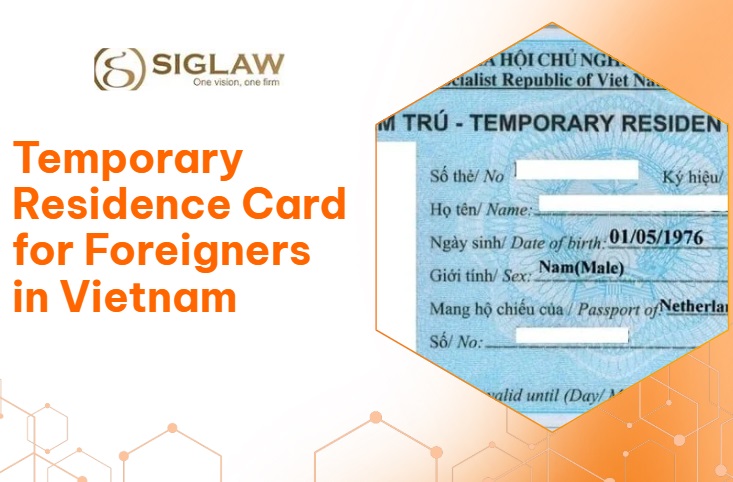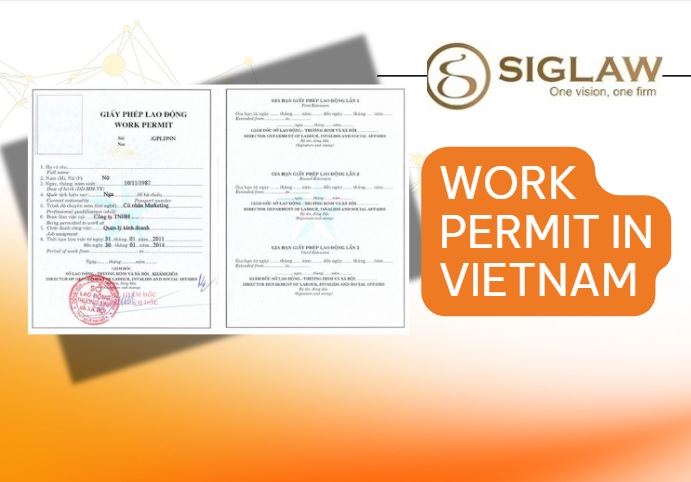The types of enterprises in Viet Nam
The type of enterprise shall be “công ty trách nhiệm hữu hạn” or “công ty TNHH” for limited liability companies; “công ty cổ phần” or “công ty CP” for joint stock companies; “công ty hợp danh” or “công ty HD” for partnerships; “doanh nghiệp tư nhân”, “DNTN” or “doanh nghiệp TN” for sole proprietorships. Therefore, it can be simply understood that “the business forms chosen by individuals or organizations that represent the goals that the company or enterprise builds and develops” are the types of enterprises. Below, we invite you to join Siglaw to learn in detail about the types of enterprises in Vietnam:
Type of Sole proprietorships
According to the concept of the Law on Enterprise 2020: “A sole proprietorship is an enterprise owned by a single individual whose liability for its entire operation is equal to his/her total assets.” From this definition, it can be seen that the type of private company has the following characteristics:
- Membership: owned by 01 individual. Note: each individual is only allowed to establish a single private enterprise. If you are the owner of a private enterprise, you will not be a general partner of a partnership or the owner of a business household. In addition, private enterprises are not allowed to contribute capital to establish or buy shares or capital contributions in a limited liability company, partnership or .
- Capital mobilization capacity: Like a partnership, a private enterprise is not allowed to issue any type of securities
- Legal status: this is the only type of company without legal status
- Regulation of liability: The owner of a private enterprise will have unlimited liability, with all of his/her assets, without separating personal assets from company assets for all activities of the private enterprise.
Advantages of Sole proprietorships:
The business owner is proactive in deciding all matters related to the business.
A sole proprietorship is the only type of company in which the business owner has the right to sell his business to another person.
Disadvantages of Sole proprietorships:
No legal status
Higher risk when having to take responsibility with all of his assets.
The company’s ability to raise capital from many sources will be most limited
Restrictions in business activities when not being allowed to contribute capital to establish or buy shares in other types of businesses.
Only allowed to establish one sole proprietorships
TYPE OF SINGLE-MEMBER LLC
Currently, the Law on Enterprises in Vietnam defines a single-member LLC as follows:“A single-member limited liability company is an enterprise owned by a single organization or individual ((hereinafter referred to as “owner”). The owner’s liability for the company’s debts and other liabilities shall be equal to the company’s charter capital.”
From the definition and legal regulations, we can identify some characteristics of this type of enterprise as follows:
- Owner: A single-member LLC, as its name suggests, has only one owner. That owner can be an individual or an organization.
- Capital mobilization ability: A single-member LLC is allowed to issue bonds, however, the company is not allowed to issue shares
- Legal status: has legal status. Having legal status brings many important advantages to this type of single-member LLC. First, the life of the enterprise becomes stable, separate from the life of individuals in the enterprise. This ensures the stability and sustainability of the enterprise’s business activities. Second, legal status allows the enterprise to participate in independent legal relationships, creating trust and transparency in transactions.
- Liability regime: the owner of a single-member LLC is only responsible within the scope of the company’s charter capital
This means that in a single-member LLC, the owner of the company is responsible for the debts and other property obligations of the company within the scope of the company’s charter capital, or in other words, the owner’s responsibility is limited to the capital they have invested in the company.
If the company encounters financial difficulties or has debts, the owner of the company is not responsible for personal assets other than the charter capital. The owner’s liability is limited, and they do not have to use personal assets other than their capital contribution to be responsible for the company’s debts and obligations.
Advantages of a single-member LLC:
- A single-member LLC has a relatively low capital investment level, and the establishment and operation process is simpler than some other types of companies such as joint stock companies. It also has high flexibility in deciding and changing business operations.
- Simple management: Because there is only one member, company management becomes simpler and easier. The owner can make decisions quickly and easily run the business.
- It is not necessary to find a partner to establish a business together.
- Limited liability, separate from personal assets
Disadvantages of a single-member LLC:
- Capital mobilization from multiple sources of a single-member LLC will be limited
- Capital cannot be withdrawn directly but must be transferred in part or all of the capital to another organization or individual.
- Because of limited liability, it is often more difficult to create trust with partners
- Salary paid to the Owner is not included in reasonable expenses when calculating corporate income tax.
Type Of Multi-Member Limited Liability Companies
Members: can be organizations or individuals. Number of members from 02 to 50 members
Capital mobilization capacity: Multi-Member Limited Liability Companies is allowed to issue bonds, however, this type of company is not allowed to issue shares
Legal status: has legal status
Regulation of liability: members of Multi-Member Limited Liability Companies are only liable within the scope of their contributed capital.
Advantages of Multi-Member Limited Liability Companies: Limited liability, separate from personal assets
Disadvantages of LLCs with 2 or more members:
- Because the type of business is limited liability, it is often more difficult to create trust with partners
- The company’s ability to mobilize capital from many sources will be limited
TYPE OF PARTNERSHIP
Members: there are at least 02 partners who are joint owners of the company and do business together under a common name. Members of a partnership are classified as follows:
- General partners: can only be individuals, unlimited liability, meaning that the partners will be responsible for all of their assets for the obligations of the company;
- A limited partner: can be organizations or individuals. For capital contributing members, the capital contributing members will only be responsible for the debts of the company within the scope of the capital committed to contribute to the company without having to bear unlimited liability like general partners.
Capital mobilization capacity: Partnerships are not allowed to issue any type of securities
Legal status: have legal status
Regulation of liability: As analyzed above, depending on the type of member of the partnership, the liability will be different. The general partner will have unlimited liability while the capital contributor will have limited liability.
Advantages of the partnership type of enterprise:
- Management of the partnership type of enterprise is not too complicated
- General partners are individuals with high professional qualifications and prestige. This creates trust for partners.
- Banks are more likely to lend capital and defer debt
- Compact organizational structure, easy to manage.
Disadvantages of the partnership:
- Unlimited liability means the risk level of the general partners is very high. When the general partner withdraws from the company, they are still responsible for the company’s debts
- The company’s capital mobilization from many sources will be most limited
Type of joint stock company
A joint stock company (JSC) is a type of enterprise in Vietnam in which the owner’s capital is divided into shares. A joint stock company is established by at least three shareholders and there is no limit on the number of shareholders. Thus, it can be seen that a joint stock company has the following characteristics:
- Members: at least 03 shareholders and no maximum limit
- Capital mobilization capacity: A joint stock company is the only type of enterprise that has the right to issue shares to attract capital from investors. A joint stock company can list its shares on the stock market.
- Legal status: has legal status
- Liability regime: Shareholders are only responsible for the capital they have invested in the company, usually the amount of money to buy shares. This means that if the company encounters financial difficulties or goes bankrupt, shareholders do not have unlimited personal liability for the debts and other obligations of the company.
Advantages:
- Limited liability regime
- Simple share transfer procedures
- Capital mobilization capacity of joint stock companies is very high
- Right to list and trade shares on the stock exchange.
Disadvantages:
- Company organizational structure is complicated
- Difficulty in making a decision
- Additional costs when transferring shares
WHAT TYPE OF BUSINESS IS POPULAR IN VIETNAM?
The most popular types of businesses in Vietnam today are single-member LLCs, LLCs with two or more members, and Joint Stock Companies.
These types of businesses have the most advantages when it comes to flexibility in management, the ability to attract investment capital easily, and simpler establishment procedures. In particular, members will only be liable to a limited extent within their capital contribution/charter capital, so individuals can limit risks when personal assets are separated from company assets in all activities.
Choosing the type of business to establish in Vietnam depends on many factors, including business scale, goals, finance, management, legality, and many other factors. Investors and businesses need to carefully consult and research the characteristics of the types of businesses in Vietnam to choose the type of company that best suits their needs.
CONSULTING SERVICES ON TYPES OF ENTERPRISES IN VIETNAM
| ✅Promotions | ⭐Free consultation on types of enterprises when using Siglaw’s company establishment service |
| ✅Experience | ⭐More than 10 years of experience in consulting on documents and procedures on types of enterprises in Vietnam |
| ✅Siglaw team | ⭐Lawyers of Siglaw law firm are highly qualified and experienced legal experts |
| ✅Cost | ⭐Contact hotline 0961 366 238 for an exact quote. |
The above is information on the topic “Types of enterprises in Vietnam” from the staff of Siglaw Law Firm. If you have any problems that need to be resolved, please contact Siglaw law firm for the fastest and completely free support.
Phone: (+84) 961 366 238
Email:
- vphn@siglaw.com.vn
- vphcm@siglaw.com.vn
Headquarters: No.44/A32-NV13, Gleximco A, Le Trong Tan street, An Khanh, Hoai Duc, Ha Noi, Vietnam.
Southern branch: No.103 – 105 Nguyen Dinh Chieu Str., Xuan Hoa Ward, Ho Chi Minh.
Central branch: VIFC DN – ICT Building Software Park No. 2, Nhu Nguyet Street, Hai Chau Ward, Da Nang City
Facebook: https://www.facebook.com/hangluatSiglaw










